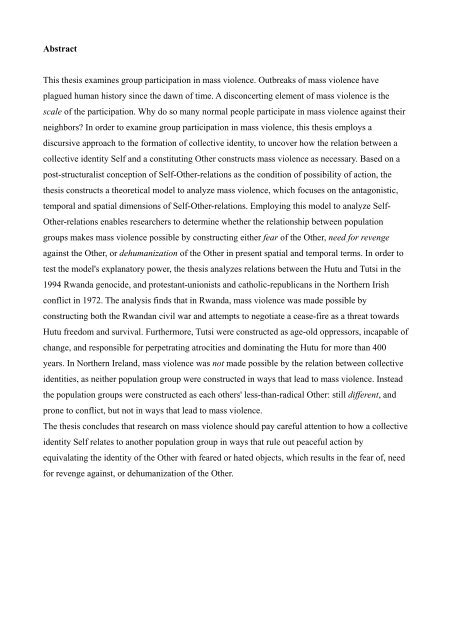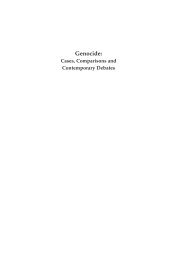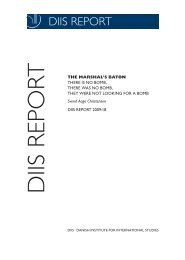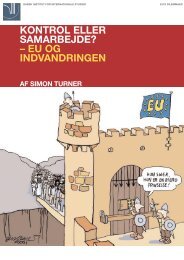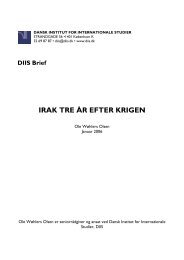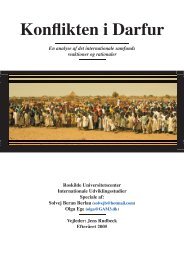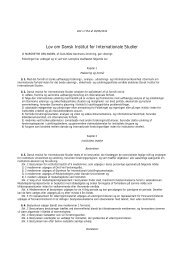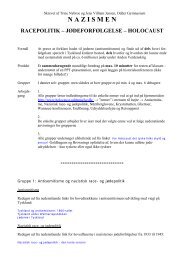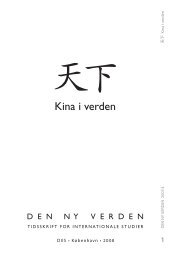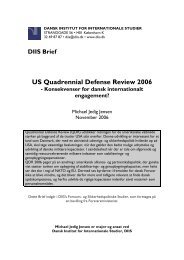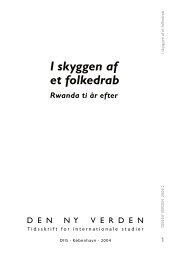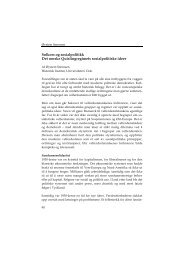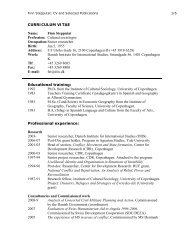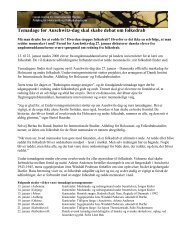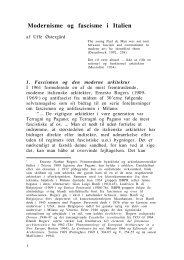Abstrakte Identiteter – Konkret Vold - DIIS
Abstrakte Identiteter – Konkret Vold - DIIS
Abstrakte Identiteter – Konkret Vold - DIIS
Create successful ePaper yourself
Turn your PDF publications into a flip-book with our unique Google optimized e-Paper software.
Abstract<br />
This thesis examines group participation in mass violence. Outbreaks of mass violence have<br />
plagued human history since the dawn of time. A disconcerting element of mass violence is the<br />
scale of the participation. Why do so many normal people participate in mass violence against their<br />
neighbors? In order to examine group participation in mass violence, this thesis employs a<br />
discursive approach to the formation of collective identity, to uncover how the relation between a<br />
collective identity Self and a constituting Other constructs mass violence as necessary. Based on a<br />
post-structuralist conception of Self-Other-relations as the condition of possibility of action, the<br />
thesis constructs a theoretical model to analyze mass violence, which focuses on the antagonistic,<br />
temporal and spatial dimensions of Self-Other-relations. Employing this model to analyze Self-<br />
Other-relations enables researchers to determine whether the relationship between population<br />
groups makes mass violence possible by constructing either fear of the Other, need for revenge<br />
against the Other, or dehumanization of the Other in present spatial and temporal terms. In order to<br />
test the model's explanatory power, the thesis analyzes relations between the Hutu and Tutsi in the<br />
1994 Rwanda genocide, and protestant-unionists and catholic-republicans in the Northern Irish<br />
conflict in 1972. The analysis finds that in Rwanda, mass violence was made possible by<br />
constructing both the Rwandan civil war and attempts to negotiate a cease-fire as a threat towards<br />
Hutu freedom and survival. Furthermore, Tutsi were constructed as age-old oppressors, incapable of<br />
change, and responsible for perpetrating atrocities and dominating the Hutu for more than 400<br />
years. In Northern Ireland, mass violence was not made possible by the relation between collective<br />
identities, as neither population group were constructed in ways that lead to mass violence. Instead<br />
the population groups were constructed as each others' less-than-radical Other: still different, and<br />
prone to conflict, but not in ways that lead to mass violence.<br />
The thesis concludes that research on mass violence should pay careful attention to how a collective<br />
identity Self relates to another population group in ways that rule out peaceful action by<br />
equivalating the identity of the Other with feared or hated objects, which results in the fear of, need<br />
for revenge against, or dehumanization of the Other.


